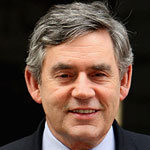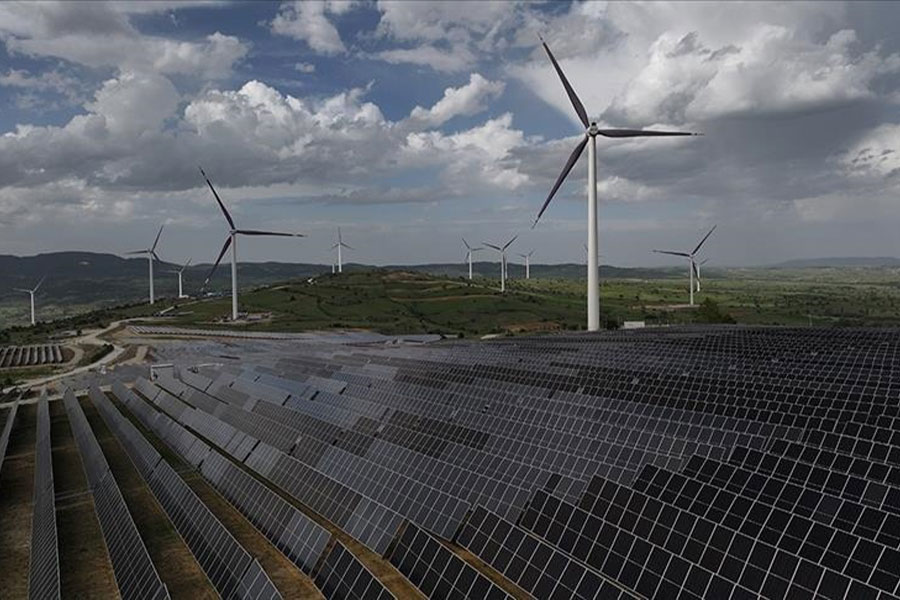
Viewpoints | Apr 06,2024
Sep 30 , 2023
By Gordon Brown
After India's G20 Summit and the UN General Assembly this month, world leaders will attend the International Monetary Fund (IMF) and World Bank meetings in Marrakesh, Morocco, before heading to Dubai's UN Climate Change Conference (COP28). But there is little optimism that these summits will deliver meaningful progress in tackling our most significant challenges, not because of any lack of resolve, but because the global rulebook we have been following since the end of World War II is no longer fit for purpose.
The world's growing fragmentation was confirmed at the G20 Summit. Though the meeting signalled India's arrival as a major power, Prime Minister Narendra Modi's moment of triumph was fleeting. The Summit did little to prevent the 2020s from almost certainly becoming a low-growth decade.
Despite the African Union's (AU) admission as a full member of the G20, the Global South received scant relief for its crushing debts. And though G20 members are responsible for 75pc of global carbon emissions, the Summit failed to address the scale of the climate financing gap. Based on the findings of the G20's Capital Adequacy Review, the Biden Administration has committed to securing an additional 25 billion dollars for the World Bank. But that figure falls far short of the 260 billion dollars annual fillip that former US Treasury Secretary Lawrence H. Summers recommended in the Singh-Summers report to the G20 this year.
Instead, the Summit concludes a year in which China and the West have erected new "iron curtains" in technology, trade, investment, and data – foreshadowing a future of "one world, two systems." With this new protectionism came a downgrading of the G20.
Whereas former US President Barack Obama recognised the G20 as the premier forum for global economic cooperation, current US National Security Adviser Jake Sullivan sees the G7 (Europe, America, and Japan) as the "steering committee of the free world." The G20's relegation is a by-product of the shift from a unipolar to a multipolar world, from a hyper-globalised economy to one that might be called "globalisation lite," and from neoliberalism toward neo-mercantilism.
For the last three decades, economics has determined political decision-making. Now politics – and nationalist politics at that – is driving policymaking. Zero-sum politics is triumphing over "win-win" economics.
In 1999, when I attended the first G20 (then composed only of finance ministers), American hegemony peaked, and the US Federal Reserve and US Treasury were happy to be called "the committee to save the world."
When the global economy unravelled in 2008, the United Kingdom (UK) and others called on G20 member-state heads of government to come together for the first time. At the London G20 in 2009, we were keen that China join with the West in buttressing the global economy with one trillion dollars of support. We could already see the world heading in a more multipolar direction.
The London Summit also commissioned India's then-Prime Minister, Manmohan Singh, to oversee a review of the prevailing international architecture. Then, at the Pittsburgh Summit in the fall of 2009, the G20 agreed on a global compact for growth, to be spearheaded by the IMF, which would publish annual assessments to identify both the risks facing the global economy and the opportunities for coordinated action.
But as the West retreated into austerity policies and embraced new forms of protectionism, these initiatives fizzled out. Under Donald Trump, the United States broke from its tradition of (usually) acting multilaterally, and pursued unilateralism even as a multipolar world was coming into play. However, climate change, the COVID-19 pandemic, and the energy and food crisis of 2022 confirm that the issues we face today are genuinely global problems that need global solutions.
Progress cannot be achieved by bilateral and regional interventions alone; it requires globally coordinated action. In elevating the G7 at the expense of the G20, we need to ask what happens the next time there is a global financial crisis and we cannot find a way to bring all the major players together.
What chance will we have of progress in reducing global emissions and preventing "free riders" in a world of "everyone for himself"? What chance do we have of dealing with global inequality if countries see the world only in terms of "us versus them," and where there are no forums to find common ground?
True, US President Joe Biden acknowledges the need for global cooperation and is the most internationalist of recent US presidents. But while his own G20 agenda was not wrong-headed, it was half-hearted, preferring bilateral alliances to globally coordinated action. Equally, China presents itself as a champion of the global rules-based order and promises to uphold the UN Charter; yet its top leader, Xi Jinping, did not even attend the G20 or this month's UN assembly.
These rare moments where preparation meets opportunity are when we must act together. US President John F. Kennedy's nuclear test ban treaty, Ronald Reagan and Mikhail Gorbachev's nuclear arms reductions, and the historic 1987 agreement to address the ozone layer depletion all showed that strong leaders could ensure radical changes in direction. Today's leaders must not wait for a catastrophe before being forced into action.
PUBLISHED ON
Sep 30,2023 [ VOL
24 , NO
1222]


Viewpoints | Apr 06,2024

Commentaries | Sep 10,2023

Radar | Jul 28,2025

Radar | Feb 22,2020

Radar | Jun 22,2024

Commentaries | Dec 30,2023

Commentaries | Oct 28,2023

Commentaries | Aug 23,2025

Radar | Jul 18,2020

Radar | Dec 11,2021

Photo Gallery | 170221 Views | May 06,2019

Photo Gallery | 160461 Views | Apr 26,2019

Photo Gallery | 150086 Views | Oct 06,2021

My Opinion | 136234 Views | Aug 14,2021





Dec 22 , 2024 . By TIZITA SHEWAFERAW
Charged with transforming colossal state-owned enterprises into modern and competitiv...

Aug 18 , 2024 . By AKSAH ITALO
Although predictable Yonas Zerihun's job in the ride-hailing service is not immune to...

Jul 28 , 2024 . By TIZITA SHEWAFERAW
Unhabitual, perhaps too many, Samuel Gebreyohannes, 38, used to occasionally enjoy a couple of beers at breakfast. However, he recently swit...

Jul 13 , 2024 . By AKSAH ITALO
Investors who rely on tractors, trucks, and field vehicles for commuting, transporting commodities, and f...

Oct 4 , 2025
Eyob Tekalegn (PhD) had been in the Governor's chair for only weeks when, on Septembe...

Sep 27 , 2025
Four years into an experiment with “shock therapy” in education, the national moo...

Sep 20 , 2025
Getachew Reda's return to the national stage was always going to stir attention. Once...

Sep 13 , 2025
At its launch in Nairobi two years ago, the Africa Climate Summit was billed as the f...

Oct 5 , 2025 . By NAHOM AYELE
In Meqelle, a name long associated with industrial grit and regional pride is undergo...

Oct 5 , 2025 . By BEZAWIT HULUAGER
The federal government is set to roll out a new "motor vehicle circulation tax" in th...

Oct 5 , 2025 . By NAHOM AYELE
The Bank of Abyssinia is wrestling with the loss of a prime plot of land once leased...

Oct 5 , 2025 . By BEZAWIT HULUAGER
The Customs Commission has introduced new tariffs on a wide range of imported goods i...